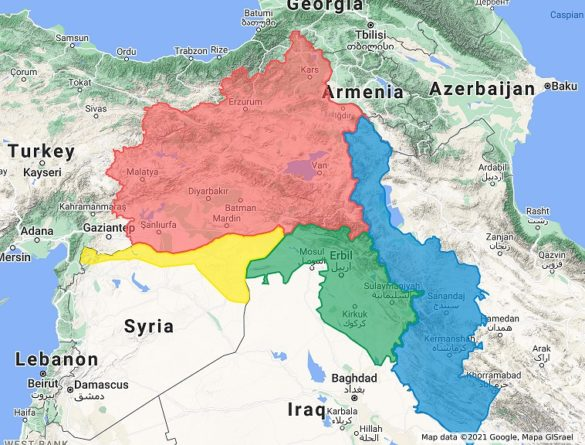
November 28thWhat I learned from my visit with a Kurdish family
Last Saturday, I was invited to join a Kurdish family for dinner. I had met this family through Donna Entz, who was a neighbour of theirs in North Edmonton. This invitation was to celebrate the milestone of becoming a Canadian citizen. And, through Donna, I was part of the Canadian community that has welcomed them. They shared how very grateful they are to be in Canada and not to worry every day about their safety and their future.
For all refugees, this is an important milestone, but for some, it is the first time they have a citizenship at all – because they come from an ethnic community that has been deemed stateless. And when someone is stateless, they have no citizenship identity, which means they have no protection. Many Kurdish refugees are in this situation of being stateless – just like Palestinians.
We talked about the current situation in Gaza, and my Kurdish friend explained that he has not been paying that much attention because of the ongoing trauma of displacement and oppression the Kurdish people continue to face back home. Kurdistan is an area of land where the Indigenous Kurdish people live – a land that has been parceled up and is under the authority of Iran, Syria, Turkey and Iraq. My friend’s family lived in Iran until they were displaced and became refugees in Iraq. They were able to come to Canada in 2015.
This family feels isolated because of their Kurdish identity. They are not Persian, they are not Turkish, and they are not Arabs. They are Kurds. They tell stories of their land – of hunting, fishing, picking pomegranates and figs. We watched videos together of Kurdish culture and nature. They long to connect to our Treaty Six land through hunting, fishing and fruit tree growing. They come with backgrounds in education, pharmacy, baking, and are stuck in low-paying jobs, longing for opportunity to be recognized for their full breadth of experience. They long for this with the humility of knowing that all of this takes time.
Hearing their story reminded me of all of the hidden stories of displacement, oppression, racism we either know little about, or whose histories we question as valid and true. In these stories are a longing for the healing that comes of “being believed” and being fully included in community.
And so, I began to reflect on the Biblical story of Jesus’ healing of the 10 lepers. I am trying to imagine the conversations Jesus might have had with the people he encountered who had leprosy. Imagine if Jesus had said to them, “I don’t think you are as sick as you let on – you are exaggerating your condition just for pity” or “you brought this onto yourself, your lifestyle is the reason you are sick….” Instead, Jesus listened to their stories – their histories of displacement, oppression, exclusion. He heard in their stories a longing for healing both of their condition, but more importantly healing into full community inclusion.
God has given us the intelligence of wisdom in Christ to grapple with stories and histories and to see as clearly as Jesus did what oppression and displacement and dispossession and exclusion look like. Our refusal to live into this wisdom is perhaps the greatest sin of our time. Jesus models for us and invites us to believe the stories of the vulnerable, the dispossessed, the displaced, the excluded. And in that belief of story, we will find ways to heal and reunite all of humanity – in the spirit of Christ. That is our calling.
I pray every day that God will give me the wisdom to listen to stories and histories with trust and compassion – so that I, like Jesus, can contribute to healing back into community.
Watch these videos for a glimpse into the Kurdish life: